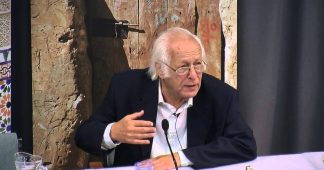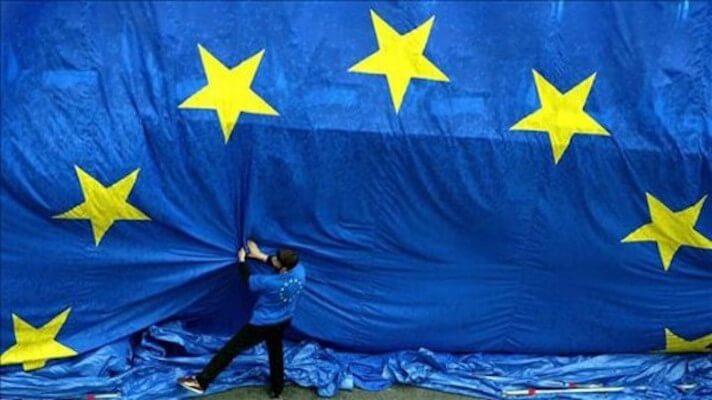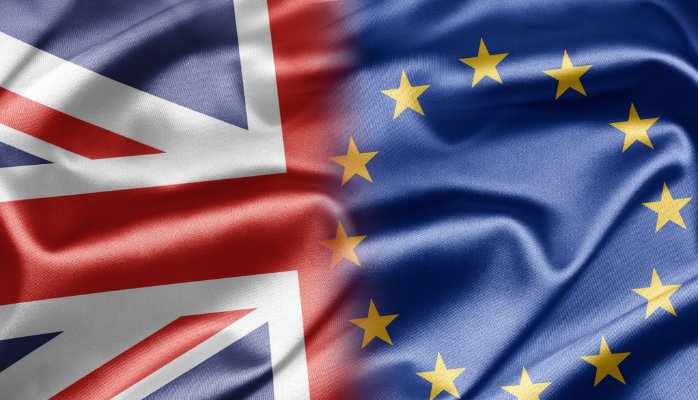By Samir Amin – November 2016 Translation by Dimitri Devyatkin
- The recent election of Donald Trump after Brexit, the rise of fascist votes in Europe, but also and much better, Syriza’s electoral victory and the rise of Podemos are all manifestations of the depth of the crisis of the system of globalized neoliberalism. This system, which I have always considered unsustainable, implodes before our eyes in its very heart. All attempts to save the system – to avoid the worst – by minor adjustments are doomed to failure.
The implosion of the system is not synonymous with advances on the road to building a truly better alternative for people: the autumn of capitalism does not coincide automatically with the spring of the people. A separation separates them, which gives our epoch a dramatic tone bearing the gravest dangers. Nonetheless, implosion – because it is inevitable – should be grasped as precisely the historical opportunity offered to the people. It paves the way for possible advances towards the construction of the alternative, which comprises two indissociable components: (i) at the national level, the abandonment of the fundamental rules of liberal economic management for the benefit of sovereign projects giving rise to social progress; (ii) at the international level, the construction of a system of polycentric globalization can be negotiated. Parallel advances on these two levels will become possible only if the political forces of the radical left conceive the strategy and succeed in mobilizing the popular classes to advance the attainment of the objectives. This is not the case, as demonstrated by Syriza’s setbacks, the ambiguities and confusions of the British and US votes, the extreme timidity of the heirs of Euro-communism.
- The system in place in the countries of the historic imperialist triad (the United States, Western Europe, Japan) is based on the exercise of the absolute power of the national financial oligarchies concerned. The latter alone manage all national productive systems, having succeeded in reducing almost all small and medium-sized enterprises in agriculture, industry and services to the status of subcontractors for the exclusive benefit of financial capital. These oligarchies manage also the political systems inherited from bourgeois electoral and representative democracy, having succeeded in domesticating the right and left electoral political parties, at the expense of eroding the legitimacy of the democratic practice concerned. These oligarchies also controll the propaganda apparatuses, having succeeded in reducing the patrons of information to the status of media clergy in its exclusive service. None of these aspects of the dictatorship of the oligarchy is challenged by the social and political movements at work in the triad, especially not in the United States.
The oligarchies of the triad also claim to extend their exclusive power to the entire Planet by imposing a particular form of globalization, that of globalized liberalism. But here they face more resistances than they are in the societies of the triad, heirs and beneficiaries of the “advantages” of imperialist domination. For if the social ravages of liberalism are visible in the West, they are of a magnitude tenfold in the peripheries of the system. To the point that few existing political regimes may still seem legitimate in the eyes of their peoples. Fragile in the extreme, the comprador classes and states which constitute the conveyor belts of the domination of the collective imperialism of the triad are, therefore, rightly regarded by the oligarchies of the centers as uncertain allies. The logic of the system then imposes the militarization and the right of imperialism to intervene – including by war – in the countries of the South and the East. The oligarchies of the triad are all “hawks”; NATO, the instrument of their permanent aggression, has thus become the most important institution of contemporary imperialism.
Proof of this aggressive option was given in the tone of President Obama’s remarks during his last European tour (November 2016): to reassure European vassals about US involvement in NATO. Obviously the organization is not presented as an instrument of aggression – which it is – but as the means of ensuring the “defense” of Europe. Threatened by whom?
First of all by Russia, as we are told by the media clergy in place. The reality is different; Putin is criticized for not accepting the Euro-Nazi coup of Kiev, the power of the mafia of brigands in place in Georgia. He is compelled to do so by, beyond the economic sanctions, the threats of war uttered by Hillary Clinton.
Then, we are told, the terrorist threat of Islamic jihadism. Again, opinion is perfectly manipulated on the subject. Jihadism is only the inevitable product of the triad’s continued support of reactionary political Islam inspired and financed by Gulf wahabism. The exercise of this so-called Islamic power is the best guarantee of the total destruction of the ability of societies in the region to resist the dictates of liberal globalization. At the same time, it offers the best pretext for giving the appearance of legitimacy to NATO’s interventions. In this regard the press in the United States acknowledged that Donald Trump’s accusation – that Hillary had actively supported the establishment of Daesh – was well founded.
Let us add that the accompanying speeches associating the interventions of the NATO and the defense of democracy are farce, confronted with the reality.
- The defeat of Hillary Clinton – more than the triumph of Donald Trump – is therefore good news. It may be have been the defeat of the most aggressive falcon clan led by Obama and Hillary Clinton.
I say “may be” because it is not stated whether Donald Trump will engage his country on a different path.
In the first place, neither the opinion of the majority which supported it, nor that of the minority which manifests against it, do so. The debate concerns only some of the problems of society in the United States (anti-feminism and racism in particular). It does not call into question the economic underpinnings of the system, which has led to the deterioration of social conditions in important segments of society. The sacredness of private property, including that of monopolies, remains intact; The fact that Donald Trump is himself a billionaire has been an asset and not an obstacle to his election. But the debate was never concerned with Washington’s aggressive foreign policy. We would have liked to see today’s protesters against Donald Trump calling yesterday to protest against Hillary Clinton’s aggressive remarks. This obviously did not happen; The citizens of the United States have never condemned military interventions abroad and the genuine crimes against humanity associated with them.
Sanders’ election campaign had given rise to much hope. By daring to introduce a socialist perspective into the debate, Sanders initiated the sound politicization of public opinion, which is no more impossible in the United States than elsewhere. We can only deplore, under these conditions, the capitulation of Sanders and his rallying to the support of Clinton.
Much more important than “public opinion” is the fact that the ruling class of the United States conceives no other international policy than that which has been in place since the creation of NATO 70 years ago – the guarantee of its domination of the entire Planet.
In the two Republican and Democrat camps dominating the Congress and the Senate, we would be told are “doves” and “hawks”. The first of these qualifiers is certainly forced; These are falcons that only think a little more before embarking on a new aggressive adventure. Donald Trump and some of his entourage may be among them. Not much better. You must know it; Avoid making too many illusions against her; but also to exploit this small flaw in the American edifice to reinforce the possible advances towards the construction of another globalization, a little more respectful of the right of peoples and the demands of peace. The European vassals of Washington fear this more than anything else.
Moreover, the remarks made by Donald Trump concerning the international policy of the United States are contradictory. On the one hand, he seems to be willing to understand the legitimacy of Russia’s fears of NATO’s aggressive projects in Ukraine and Georgia, and that Moscow is supporting Syria in a fight against jihadist terrorism. But on the other hand he said he wanted to denounce the agreement concerning the Iranian nuclear. Moreover, it is not yet known whether he is determined to pursue Obama’s policy of unconditional support for Israel or whether he intends to qualify this support.
- We must therefore place the electoral victory of Donald Trump within the wider framework of the manifestations of the implosion of the system. All these manifestations remain ambiguous to this day, carrying a best possible but also detestable drifts.
Some of the evolutions associated with these events do not in any way call into question the power of the oligarchical ruling class in place. This is the case of the Brexit, the election of Trump, the projects of the European fascists.
Certainly the campaign in favor of the Brexit appealed to nauseous arguments. Moreover, this project does not call into question the fundamental capitalist / imperialist option of Great Britain. It only suggests that, in the conduct of its foreign policy, London should have a margin of maneuver allowing it to deal directly with its partners, the United States in the front line. But behind this option is also drawn what should have been known: that Great Britain does not accept German Europe. This dimension of Brexit is certainly positive.
The fascists of Europe, who have the wind in their sails, are on the extreme right; That is to say, they do not question the power of the oligarchies in their respective countries. They wish only to be chosen by them for the exercise of power in their service. At the same time, of course, they use nauseous racist and other arguments, which prevents them from responding to the real challenges faced by their peoples.
The power of Donald Trump falls into this category of false criticism of liberal globalization. The “nationalist” tone aims to strengthen Washington’s control of its subordinate allies, not to grant them an independence that they do not even claim. Donald Trump could, from this point of view, take some modest measures of protectionism; Which, moreover, the American administrations have always, without saying so, imposed on their subaltern allies, to whom it is forbidden to retaliate. Here is drawn the analogy with what Britain of Brexit might want to do.
Donald Trump suggested that the protectionist measures he is thinking of are primarily aimed at China. Before him, Obama and Hillary had already, by their decision to transfer the center of gravity of their armed forces from the Middle East to East Asia, designated China as a major adversary. This aggressive, economic and military strategy, in flagrant contradiction with the principles of liberalism of which Washington is the champion, could be defeated by inviting China to move forward in a salutary evolution towards strengthening its internal popular market and the search for other partners in the countries of the South.
Will Trump go so far as to repeal NAFTA? If he did so he would render a great service to the people of Mexico and Canada by freeing them from their status as impotent vassals and encouraging them to engage in new directions based on the autonomy of their popular sovereign projects. Unfortunately, it is unlikely that the vast majority of Republican and Democratic representatives in Congress and the Senate, all of whom have won unconditional support of the interests of the American oligarchies, will allow Trump to go that far.
The consequences of Donald Trump’s hostility towards COP 21 are less serious than his European protagonists suggest, since it is unfortunately – or should be known – that in any event the treaty will remain dead letter as the rich countries do not intend to keep their financial promises in this area.
On the other hand, certain other manifestations of the implosion of liberal globalization are associated with social, vague or better advances.
In Europe, the electoral victory of Syriza and the rise of Podemos are part of this framework. But the projects carried out by these new forces remained contradictory: the refusal of austerity imposed on the one hand, and the illusion of the possibility of European reform. History is already demonstrating the error of appreciation regarding this reform, in fact impossible.
In Latin America, the advances made during the first decade of the century are now being questioned. The movements which have led to these advances have undoubtedly underestimated the reactionary character of the middle classes of the countries concerned, in particular Brazil and Venezuela, who refuse to share with the working classes the benefits of development worthy of the name.
Emerging projects – especially those of China and Russia – remain equally ambiguous: Is their objective to “catch up” by capitalist means and in the context of globalization, which is also capitalist, but to be forced to accept it ? Or, aware that the realization of this project is impossible, will the powers in the emerging countries concerned be oriented more in the direction of popular sovereign projects?
The exposition of these reflections on the future of the system Donald Trump draws the reader’s attention to the complementary aspects of the analysis of the implosion of contemporary capitalism, which will be found in particular under the following headings:
The implosion of contemporary capitalism; MR 2014
Russia and the long transition from capitalism to socialism; MR 2016, chap 6 (Ukraine)
Brexit and the implosion of the EU; Sites Tlaxcala, MR Zine July 2016.
From Bandung to 2015; International Critical Thought, No. 4, dec 2015.
The return of fascism in contemporary capitalism; MR, Sept. 2014.
Popular Movements towards socialism; MR, N ° 3 2014.
Contemporary Imperialism; MR N ° 3, 2015.
China 2013; MR No. 10, 2013
Autumn of capitalism, the spring of the peoples? Blog SA August 2016.
What can we expect from the North? ; Blog SA, March 2016.
Sovereign projects for Africa; Blog SA, March 2016
Facing the European crisis, a glory to the lucid courage of the Greek people; Blog SA, July 2015.











